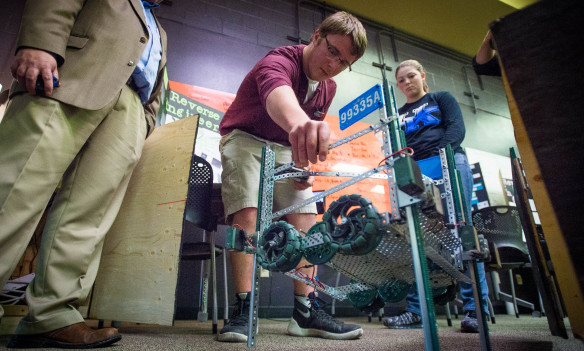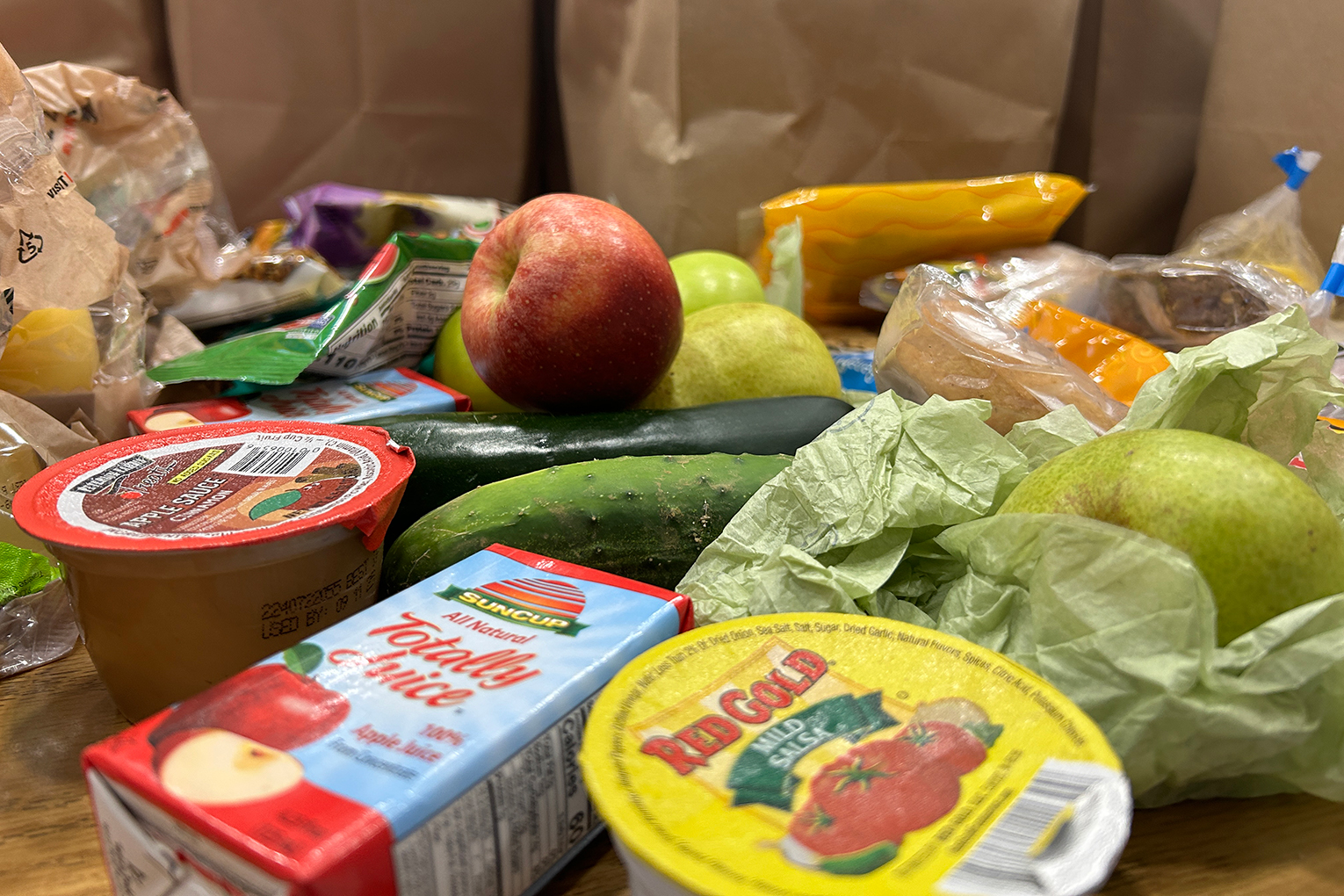
iLEAD freshman Ethan Searcy of Owen County demonstrates a robot that he built at the school’s demonstration night.
Photo by Bobby Ellis, March 24, 2016
A team from iLead Academy in Carrollton (Carroll County) joins teams from four other states as a finalist in the U.S. Department of Education’s Rural Tech Project.
iLEAD Academy, which is run by the Ohio Valley Educational Cooperative (OVEC), will develop model computer science education career pathways. OVEC also received a $4 million Education Innovation Research grant for a groundbreaking effort to train teachers to teach computer science in elementary and middle school.
iLead Academy lets students from high schools in five districts – Carroll County, Gallatin County, Henry County, Owen County and Trimble County – take virtual dual-credit classes toward computer science degrees.
The U.S. Department of Education asked rural high schools to propose technology education programs using competency-based distance learning. iLead Academy’s proposal was one of 63 submitted nationwide.
iLEAD will create Kentucky’s first virtual Computer Science Career Academy. Students in the program will earn 12 hours of college credit targeted to completion of one of six associate degrees in computer science at Jefferson Community and Technical College (JCTC) or one of two associate-to-bachelor’s degrees from JCTC to Northern Kentucky University’s College of Informatics Students who attend iLEAD Academy in-person will complete one of the degrees while in high school.
Students will earn high-demand industry certifications in digital literacy, computational thinking, and the programming languages JAVA and Python. iLEAD also will offer a virtual program introducing students to the core concepts of artificial intelligence (AI) to address rapidly increasing demand for AI specialists.
The other finalist teams are from schools in California, Michigan, Texas and Virginia. Each finalist gets a $100,000 prize and a chance to compete for another $100,000 in the competition’s second phase.
From January to July 2021, each team will develop a detailed program. The Rural Tech Project will provide support, advice and access to resources. The teams will operate and improve their plans for two academic years.
They will document their outcomes in summer 2023, when a final winner will be chosen. Insights from all finalist teams will be compiled for other communities to use.
MORE INFO …




Leave A Comment